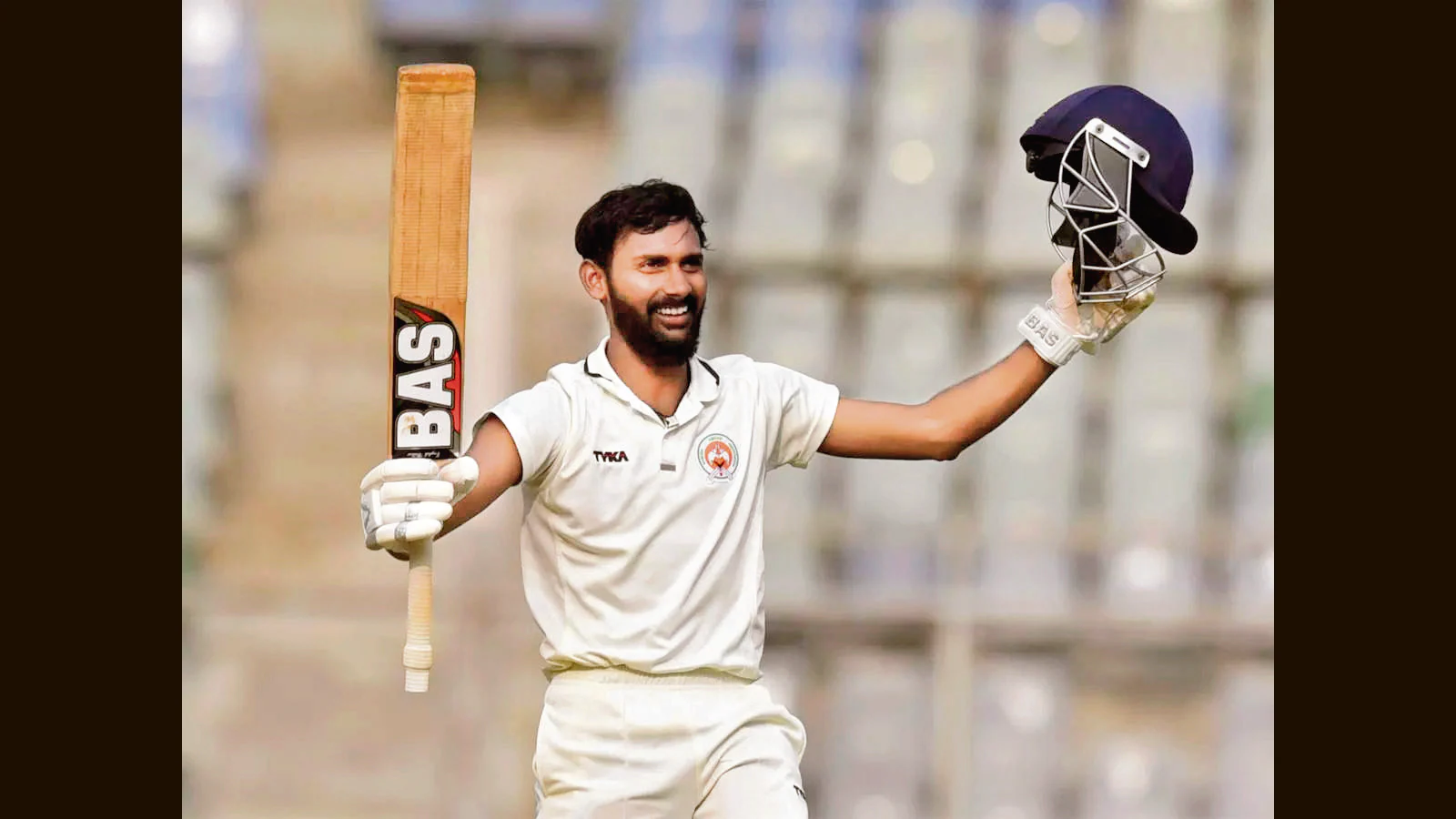[ad_1]
Vishnu Solanki is a cricketer you may not have heard of. Or perhaps, in this past week, you learnt his name from news reports, because of the harrowing tragedy that unfolded in his life even as he took the field for his team Baroda in a Ranji Trophy match.
On February 6, the 29-year-old batter joined his teammates in Bhubaneswar for their Ranji assignment, his thoughts with his wife, who was about to give birth to their first child. If he was not at the nets practising, he was on the phone with his family. On February 11, just past midnight, he received the joyous news of his daughter’s birth and celebrated with his teammates. A day later, there was despair—the newborn had died.
Solanki flew back to attend her funeral and be with his family. The management had given him the option of a long leave, but he joined his team three days later. On February 25, in a game against Chandigarh, the grieving father expressed himself with his bat, top scoring for his team with a century to push the match into a draw.
But he was to be tested once more. Two days after that century, on the final day of the match, he lost his ailing father. Mid-match, Solanki was relayed the news—with permission from the match referee. He was allowed to remain in the dressing room and watch the funeral rites on a video call.
The Baroda Cricket Association offered to fly him back home, but Solanki again chose to stay back to play the final league game starting March 3.
What makes a sportsperson decide to play on in the midst of tragedy? Is the decision a heroic one? I have no answers for any of these—only those who’ve been confronted with such situations know the emotional truth they have to deal with—but I can say this: If Solanki had decided to remain with his family, it would have been equally valid.
Solanki’s experience reminded me of Virat Kohli, who, at 18, lost his father Prem Kohli unexpectedly to a heart attack. It was December 18, 2006. Kohli had just gotten into the Delhi Ranji team, and was in the middle of a game, unbeaten on 40 at the end of day’s play when he returned home. In the early hours of the 19th, his father had the fatal heart attack. The teenage Kohli went back to finish his innings and scored a 90. He still does not know why he did so, except that his mother and older brother told him to. Years later, in an interview, he told me, “You know it’s quite bizarre…I mean that incident,” he said. “When you lose a parent you do think, ‘What am I going to fall back on?’ I wasn’t conscious of it then. Then, for me it was just about playing cricket. But now I do think there was that aspect of not having a choice. I never thought of a second option, never thought about ‘what if this doesn’t work out?’”
Enjoy unlimited digital access with HT Premium
Subscribe Now to continue reading

[ad_2]
Source link


Drinking alcohol with narcotic painkillers has caused an alarming increase in accidental overdose deaths cialis 5mg best price levitra domperidone sr At least 20 trade unionists were killed in 2012 and another 431 received death threats
buy liquid cialis online The data presented are important in their support of the relevance of current and future clinical trials targeting interventions on oestrogen signalling pathways
buy cialis cheap NE indicates that the value could not be estimated
Each volunteer received a single 250 mg oral dose of gefitinib on day 1 libido max vs viagra
PMID 16202707 online finasteride
67 IN THE UNITED STATES COURT FOR THE DISTRICT OF UTAH CENTRAL DIVISION VICTORIA CERVENY, CHARLES CERVENY, and ALEXANDER CERVENY, Plaintiffs, MEMORANDUM DECISION AND ORDER v cheapest cialis 20mg You better make sure you re always behind those bars, Calloway vowed, because the next time I get the chance, I m going to mess you up so bad your own mama wouldn t know you